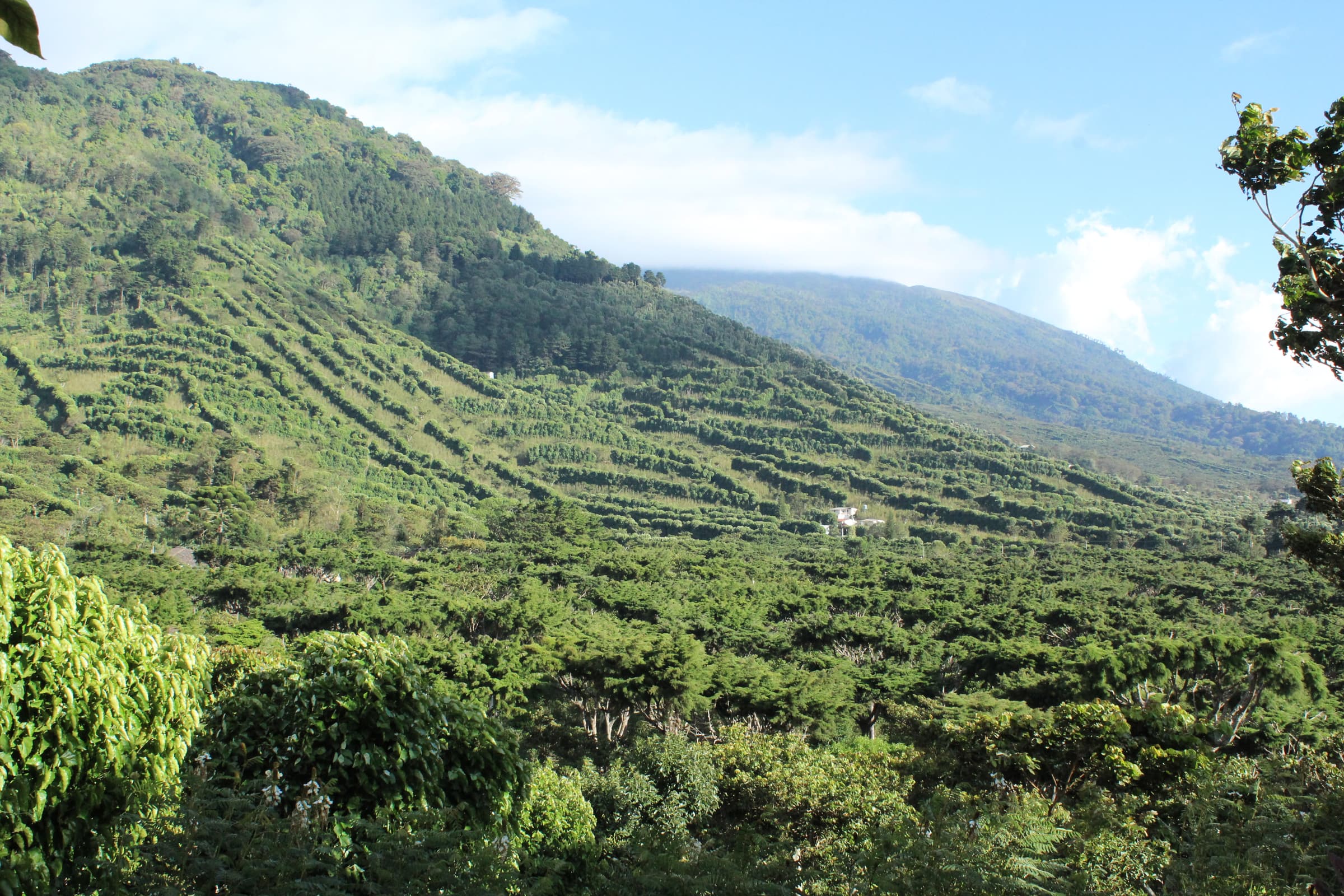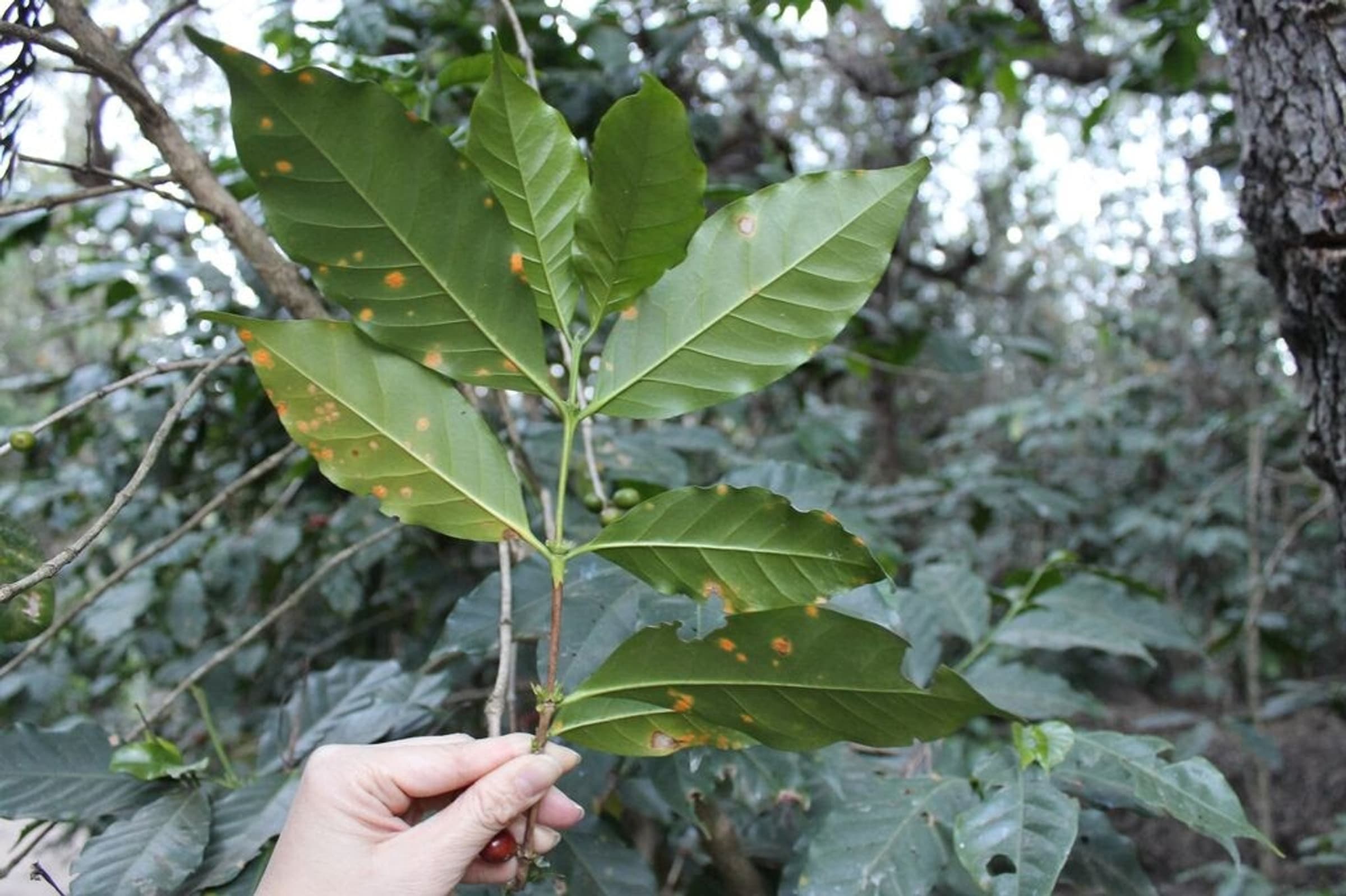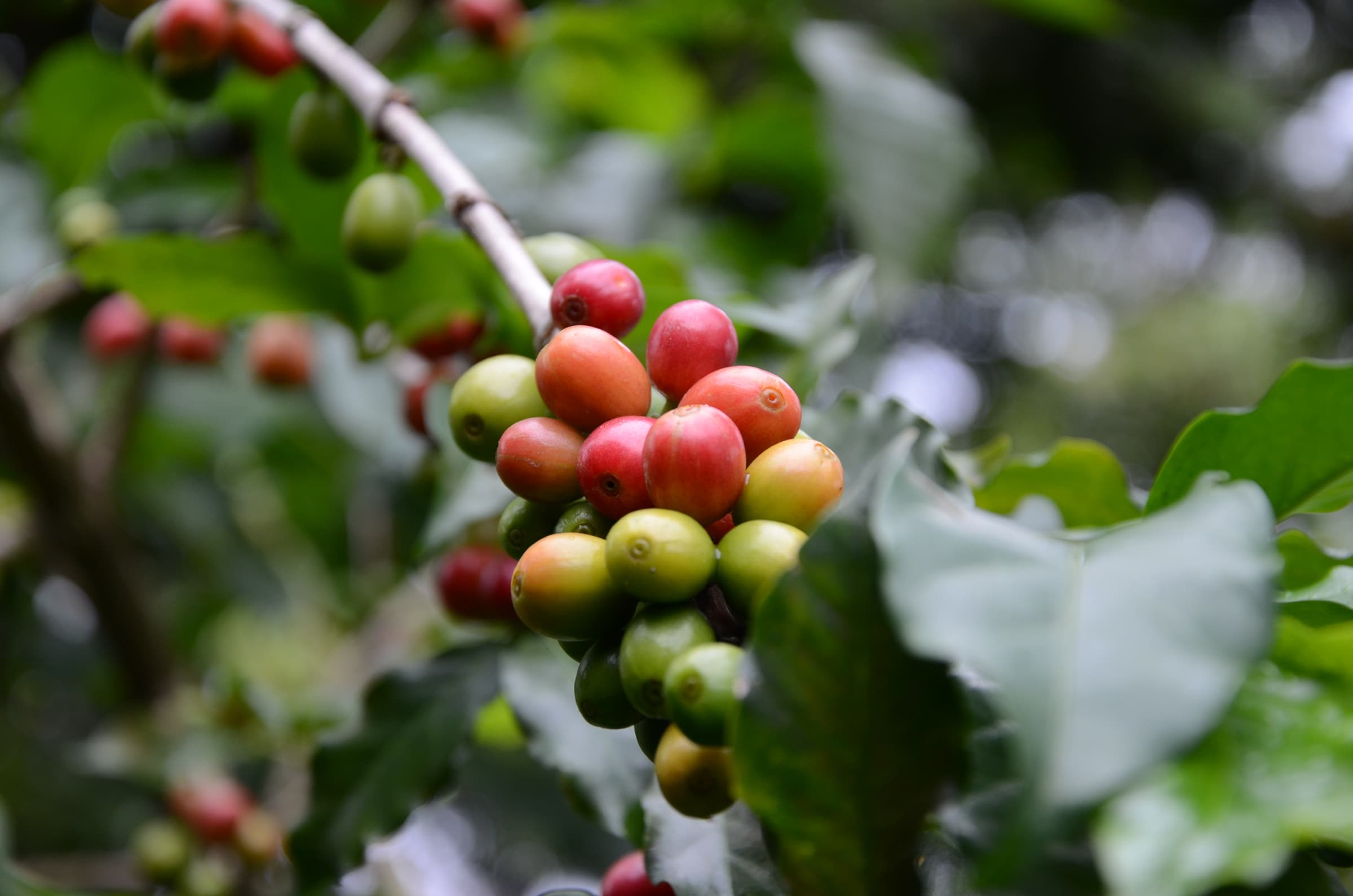World Coffee Research supports the long-term revitalization of El Salvador’s coffee sector
Agricultural R&D innovations to support new regulations and help assure the distribution of high-quality, disease-resistant plants to farmers nationwide
In 2021, the government of El Salvador initiated an ambitious and ongoing project estimated at $377 million to renovate approximately 35,000 hectares of land with more than 150 million new coffee trees in order to revitalize the country’s coffee sector, which has historically served as a foundation for the national economy. This effort is a response to a recent dramatic decline in national production, with exported coffee down to ~35,600 tonnes in 2021/22 from ~104,300 tonnes in 2000/01.1 It is the first large-scale, national renovation program to utilize modern scientific tools to ensure that high-quality, genetically conforming plants are distributed to farmers, supported by World Coffee Research’s expertise in seed quality assurance.
The renovation program is one of many changes taking place in El Salvador to support enhanced production, including the resurrection of a national research institution. "For over a decade, coffee farming in El Salvador was without a governing institution for research and technology transfer,” says Mauricio Sansivirini, Executive Director of the Salvadoran Coffee Institute, “However, thanks to the initiative of the President Mr. Nayib Bukele and in response to the request of coffee farmers, the Law for the Creation of the Salvadoran Coffee Institute (ISC) was promoted. Now, under the leadership of the Minister and Vice Minister of Agriculture and Livestock the process of establishing the ISC is being promoted.”

World Coffee Research farm, El Salvador, 2015.
According to Ricardo Esmahan of the Association of Beneficiaries and Exporters of Coffee in El Salvador (ABECAFE), El Salvador’s declining production is a direct result of severe weather events, higher temperatures, and a corresponding increase in the prevalence of the fungus Hemileia vastatrix, which causes the detrimental disease coffee leaf rust, dubbed la Roya In Spanish. With increased capacity and a focus on quality, the government aims to distribute improved varieties to farmers across the country that can withstand exposure to coffee leaf rust.
In order to ensure that farmers receive these high-quality plants, the government has implemented new regulations regarding seed and seedling production. Simultaneously, officials are attending to a myriad of other persistent challenges, such as the maintenance of forest and environmental health, smallholder profitability, and a current lack of marketing assistance for producers, that, once addressed, will help sustain coffee production in the long term.
"WCR is a strategic ally of the Salvadoran Coffee Institute, with which it hopes to continue developing research and advancements for the conservation of coffee parks, which provide economic, social, and environmental benefits for all Salvadorans."

Coffee leaf rust, El Salvador, 2015.
In support of the ambitious national project, World Coffee Research (WCR) has provided input and guidance regarding the traceability of planting material at seed lots and nurseries nationwide. WCR’s insight informed the country’s new technical regulation (RTS 67.08.03:21, published in 2021) regarding requirements for the production of certified coffee seed. Further, from 2021–2022, in collaboration with the Inter-American Development Bank (IDB), WCR conducted a study on the design and structure of quality assurance systems for coffee seeds and seedlings in El Salvador.
"El Salvador stands out among Central American countries for its well-defined approach to coffee plantation renewal, evident through its strong commitment to utilizing planting materials with traceable genetics,” says Salvador Urrutia Loucel, WCR Latin America Director, “In support of this effort, WCR is pleased to contribute since 2021 with our scientific and technical expertise to advance the goals of the project.”
The study involved the collection of samples from seed sources across the country, selected for their ability to produce varieties that fit farmers’ specific needs. This work has informed the project’s utilization of single nucleotide polymorphism (SNP)-based genetic testing, a process that helps assure that distributed plants are of the correct variety. The results of the study will support the creation of additional technical regulations for coffee nursery plant production, which are currently being formulated and are scheduled for publication in 2023.

Coffee cherries, El Salvador, 2015.
“Although Salvadoran coffee farmers did not have a technical state institution for 10 years, they did receive support from entities such as the Salvadoran Coffee Council (CSC), which made significant progress in regulating seed production,” said Sansivirini, “Another institution that took the first steps in guaranteeing the genetic composition and quality of locally produced plants was WCR, which identified seed lots and analyzed the genetic makeup of the varieties. WCR is a strategic ally of the Salvadoran Coffee Institute, with which it hopes to continue developing research and advancements for the conservation of coffee parks, which provide economic, social, and environmental benefits for all Salvadorans.”
This year, as a part of its continued collaboration with the U.S. Department of Agriculture’s Maximizing Opportunities in Coffee and Cacao in the Americas (MOCCA) project, WCR will focus on “cleaning” three important seed lots. This process will include activities like full-scale evaluation, the identification and removal of mother trees that are not true-to-type, assurance that all seed is of the correct variety, and more. This is a crucial next step in ensuring access to genetically pure planting material for farmers in El Salvador.
The clean-up process entails the collection and testing of approximately 6,000 samples. The El Salvadoran Ministry of Agriculture’s Programa del Resiliencia Climática de Bosques Cafetaleros en El Salvador, sponsored by IDB, which focuses on the maintenance of coffee forest ecosystems and improving the food security of smallholder producers, is supporting the collection effort. WCR has commenced the training of 70+ program staff in sample collection and the essential knowledge needed to understand the genetic differentiation of varieties.
"The establishment of a traceability system for coffee vegetative material is a crucial step toward the sustainability of coffee in El Salvador."
“Since the implementation of the Plan de Despegue Sostenible del Café (Sustainable Coffee Takeoff Plan), carried out by the Ministry of Agriculture and Livestock of El Salvador as part of the Master Agricultural Rescue Plan, the scientific work excellence of WCR has been essential in promoting the technification of coffee plant production processes, both in seed lots and nurseries,” says Héctor Iván Borja Galeas, Program Manager of the Programa del Resiliencia Climática de Bosques Cafetaleros en El Salvador, “This ensures that public policy decisions regarding the provision of incentives for vegetative material are more effective, as they are based on technical criteria of genetic conformity that guarantee the purity and high quality of the vegetative material provided to small Salvadoran coffee producers, especially those affected by the impacts of climate change. The establishment of a traceability system for coffee vegetative material is a crucial step toward the sustainability of coffee in El Salvador.”
El Salvador’s government aims to produce and distribute more than 150 million plants over the next decade as part of its commitment to revitalize the country’s coffee sector. These plants are estimated to generate 1.8-2 million bags (45.6 kg) of exportable green coffee, stimulating the country’s economy and supporting the livelihoods of producers nationwide. WCR is pleased to be a partner in this work to sustain supplies of high-quality beans from El Salvador, from which a large majority of WCR’s member companies source coffee (67%, according to a 2022 membership survey).
“El Salvador has taken significant steps to improve quality assurance across the seed supply at a national scale. Reducing production risk through quality assurance in the seed system will bear fruit for decades. Farmers planting one of these seeds today will have confidence for the lifetime of that tree,” says WCR CEO Dr. Vern Long. “The timing of this ambitious initiative couldn’t have been better—WCR had just finished the development of tools that dramatically reduced the cost of quality assurance and it has been an honor for WCR to provide technical support to the Government of El Salvador in this important effort for the future of coffee.”